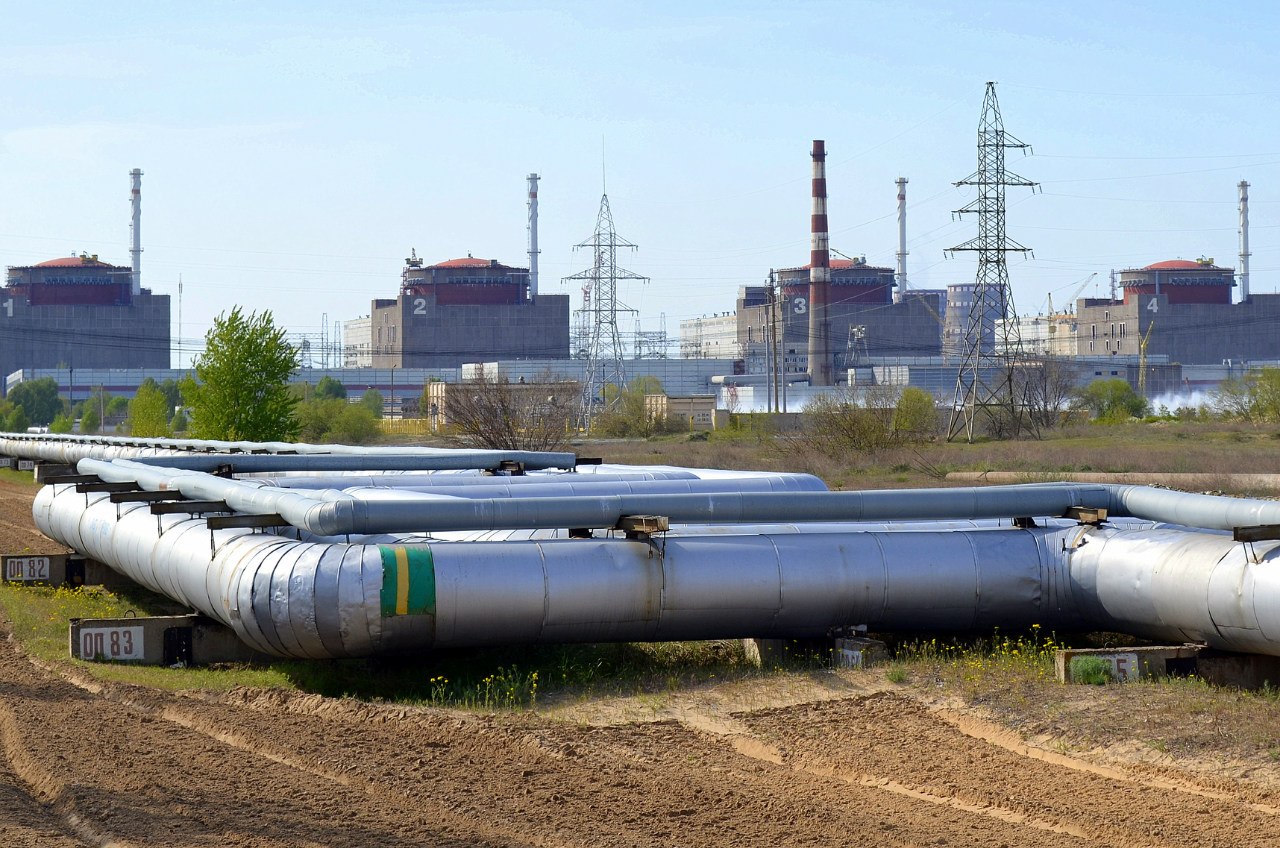The goals of the IAEA mission to the Zaporozhye nuclear power plant, did not include any mention of any attempt at establishing who in the formal sense is responsible for this facility, let alone the physical transfer of supervision over it. I do not think that the IAEA itself has the ability to remove the Russians from the site of the power plant, and neither does the UN, says Adam Rajewski, expert, VP of the Board of the Nuclear.pl foundation, in a conversation with BiznesAlert.pl.
Biznesalert.pl: Is it possible to disconnect the Zaporizhia nuclear power plant from the grid? What would be the consequences?
Adam Rajewski: Yes, it’s possible. In principle, all nuclear facilities are designed to have a „solid” power supply with several independent lines on the one hand, but on the other hand they are resistant to external power cuts. This is one of the main scenarios considered in security analyses. In such a case, the facilities have emergency power sources, in particular emergency power generators, which provide power for all needs related to ensuring nuclear safety and radiological protection. Such sources are additionally multiplied, so that no failure or repair deprives the facility of its own power supply.
Each unit of the Zaporizhia Nuclear Power Plant has three independent generators for emergency power supply, and at two units there are two additional generators for general power supply (that can be used in emergency situations as well). This is a lot more than necessary to ensure a safe turn-off and to cool all the reactors. Thus, the disconnection from the power system itself will „only” cause a significant loss of power in Ukraine’s grid. However, if this was to have any impact on safety, far-reaching steps would have to be taken to prevent the emergency power supply systems from working. This would have to be done intentionally and the emergency supply would have to be turned off intentionally for many hours as well, because it takes many hours for a complete loss of power supply to make an actual impact.
Would a possible breach of the plant’s critical infrastructure put the people and the environment at risk?
The nuclear power plant, although not designed directly for the circumstances of the hostilities conducted in its immediate vicinity, is well protected from the impact of external factors. However, everything depends on the scale of such a „violation”. An NPP’s safety systems are built in the so-called „depth” system (i.e. the plant has subsequent protective barriers that prevent an unwelcome event from spreading in case the previous barrier did not work for whatever reason), and in the so called „across” system (where a given system is multiplied, e.g. an emergency power supply system). Therefore, in order for any major events to occur, serious and significant actions would have to be taken for these systems to fail. Actions of a clearly intended nature. However, even in the worst-case scenarios, in which the Russians would somehow manage to achieve even serious releases of radioactive substances, any threat to human health could only occur in the immediate vicinity of the power plant, as was the case, for example, in Fukushima. Elsewhere, the effects may be measurable, because we can detect even small amounts of radioactive isotopes in the air, but completely irrelevant to health.
Will the visit of the International Atomic Energy Agency affect the development of events in the context of putting the power plant in the hands of the Ukrainians?
The mission itself is primarily aimed at establishing whether the critical infrastructure is still operational, whether the way the facility operates ensures that safety is maintained, etc. However, its objectives did not mention anything related to establishing who is formally responsible for this facility, not to mention the physical transfer of supervision over it. In the end, it should be clear to any observer that the Russians, whether military or civilians, supervising this area is completely illegal. I do not think that the IAEA itself has the ability to remove the Russians from the power plant, nor does the UN.
Interview by Wojciech Gryczka









